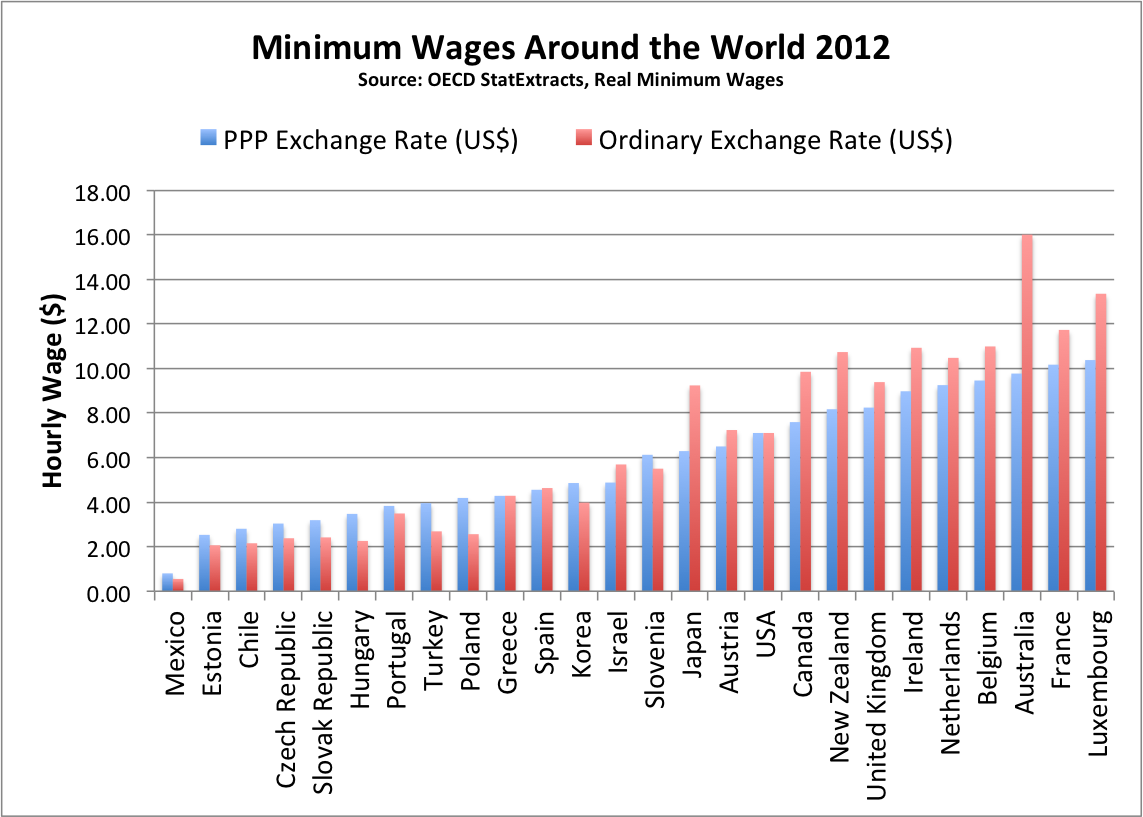Re: Study: The 2007 minimum wage hike cost more than 1 million jobs during the recess
Lawrence F. Katz and Alan B. Krueger, “The Effect of the Minimum Wage on the Fast Food Industry,” Industrial Relations Section, Princeton University, February 1992.
David Card, “Using Regional Variation in Wages to Measure the Effects of the Federal Minimum Wage,” Industrial and Labor Relations Review, October 1992.
David Card and Alan Krueger, Myth and Measurement: The New Economics of the Minimum Wage (Princeton, NJ: Princeton University Press, 1995).
David Card and Alan B. Krueger, “Minimum Wages and Employment: A Case Study of the Fast-Food Industry in New Jersey and Pennsylvania: Reply,” American Economic Review, December 2000 (in this reply, Card and Krueger update earlier findings and refute critics).
Jared Bernstein and John Schmitt, Economic Policy Institute, Making Work Pay: The Impact of the 1996-97 Minimum Wage Increase, 1998.
Jerold Waltman, Allan McBride and Nicole Camhout, “Minimum Wage Increases and the Business Failure Rate,” Journal of Economic Issues, March 1998.
A Report by the National Economic Council, The Minimum Wage: Increasing the Reward for Work, March 2000.
Holly Sklar, Laryssa Mykyta and Susan Wefald, Raise The Floor: Wages and Policies That Work For All Of Us (Boston: South End Press, 2001/2002), Ch. 4 and pp. 102-08.
Marilyn P. Watkins, Economic Opportunity Institute, “Still Working Well: Washington’s Minimum Wage and the Beginnings of Economic Recovery,” January 21, 2004.
Amy Chasanov, Economic Policy Institute, No Longer Getting By: An Increase in the Minimum Wage is Long Overdue, May 2004.
Fiscal Policy Institute, States with Minimum Wages above the Federal Level Have Had Faster Small Business and Retail Job Growth, March 2006 (update of 2004 report).
John Burton and Amy Hanauer, Center for American Progress and Policy Matters Ohio, Good for Business: Small Business Growth and State Minimum Wages, May 2006.
Paul K. Sonn, Citywide Minimum Wage Laws: A New Policy Tool for Local Governments, (originally published by Brennan Center for Justice) National Employment Law Project, May 2006, includes a good summary of impact research.
Liana Fox, Economic Policy Institute, Minimum Wage Trends: Understanding past and contemporary research, November 8, 2006.
Paul Wolfson, Economic Policy Institute, State Minimum Wages: A Policy That Works, November 27, 2006.
Arindrajit Dube, Suresh Naidu and Michael Reich, “The Economic Effects of a Citywide Minimum Wage,” Industrial & Labor Relations Review, July 2007.
Jerold L. Waltman, Minimum Wage Policy in Great Britain and the United States (New York: Algora, 2008), pp. 17-19, 132-136, 151-162, 178-180.
Sylvia Allegretto, Arindrajit Dube and Michael Reich, Do Minimum Wages Really Reduce Teen Employment?, Institute for Research on Labor and Employment, Univ. of CA, Berkeley, June 28, 2008.
Michael F. Thompson, Indiana Business Research Center, “Minimum Wage Impacts on Employment: A Look at Indiana, Illinois and Surrounding Midwestern States,” Indiana Business Review, Fall 2008.
Hristos Doucouliagos and T. D. Stanley, "Publication Selection Bias in Minimum-Wage Research? A Meta-Regression Analysis," British Journal of Industrial Relations, vol. 47, no. 2, 2009.
Sylvia Allegretto, Arindrajit Dube and Michael Reich, Spacial Heterogeneity and Minimum Wages: Employment Estimates for Teens Using Cross-State Commuting Zones, Institute for Research on Labor and Employment, Univ. of CA, Berkeley, June 25, 2009.

 .
.
